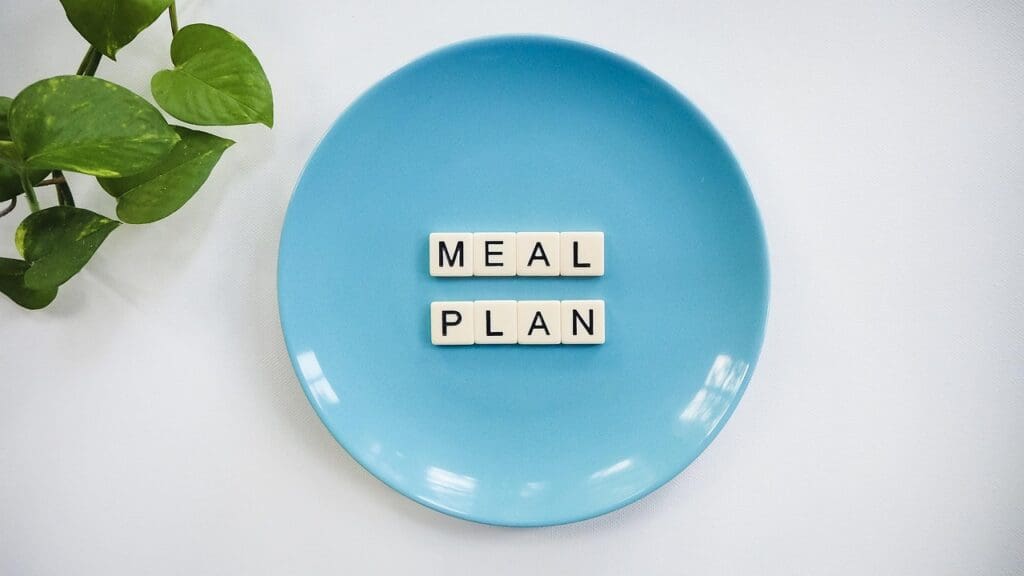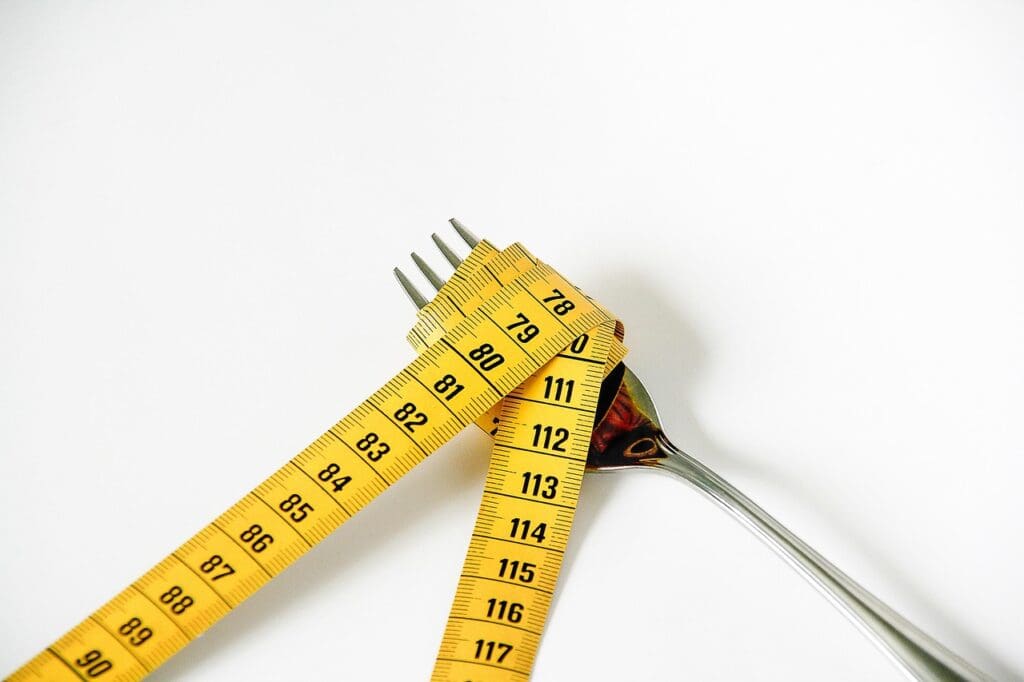Lifestyle Changes Work for Weight Loss!
By building a nutrition plan that works for you along with some exercise you can maintain lasting weight loss. Dieting for weight loss is just riding a roller coaster to lose weight. Up and down you go. Lifestyle changes are the only way to lose weight and maintain that weight loss. Meal plan to help you live a fit and healthy lifestyle.
Dieting Research Shows:
Calorie related dieting often helps you lose weight, but have been extremely failing to maintain this weight loss.
So, if you want to lose weight, what should you do, but how do you avoid regaining this weight?
Answer:
Make a lifestyle change!
Understand How and Why Diets Fail:
If your diet fails, it is not just due to a lack of will or moral character on your part.. Our bodies are wired for us to survive, and any threat to this survival the body reacts accordingly. When energy availability decreases (through diet), our bodies respond to this calorie withdrawal with measures that include metabolism, hormones, and neurological changes that will overwhelm the will of the diet.
Calorie restriction slows your metabolism, increasing our starvation hormone (Garlin) and your satiety or complete hormone (Leptin). Not only is your body hungry, but it’s less likely that you’re completely satisfied or satisfied with what you ate.
Some of us also have genetic risk factors that respond to diets and food restriction.
For some people, ravenous eating is a direct result of dieting. This response to dieting often leads to the fact that dieters have higher weights than before they started the diet.

Ask Some Questions Before You Start Dieting:
Am I ready to make a lifestyle change?
Can I eat healthy?
Am I ready for a new nutrition plan and not a diet?
Let’s Get Started:
Instead of following a restrictive diet plan that is not really designed for your lifestyle plan, develop a sustainable nutrition plan that meets your individual needs. Nutrition is not a one size fits all concept.
Avoid fast food and processed foods!
Try to use whole foods, quality proteins, fresh vegetables and fruits. Organic if you can but not a necessity.
(Our personal nutrition plan is to eat high protein, low carb meals. Sometimes we fast for 24 hours. We also make sure we take our organic supplements so we don’t miss any nutrients our body requires. We do not count calories. This works for our lifestyle, but it doesn’t mean it will work for yours).
Small sustainable changes tailored to individual lifestyles and conditions lead to better health that are likely to protect and maintain metabolism.
If weight loss is your goal, be patient!
Guess what? If you go out to dinner and enjoy a desert, don’t worry about it, just get back on your nutrition plan the next day and keep going.
This seems simple, but sometimes people have trouble changing their lifestyle. You just have to keep at it and stay off restrictive diets. A healthy weight is important per the Nutrition Source.
Most diets are temporary trends that focus on specific eating patterns, often promising rapid weight loss or other health benefits. Examples include Atkins, Keto, Paleo, and Mediterranean. These diets can be restrictive and may not be sustainable or healthy for long-term weight management or overall well-being.
Here’s a More Detailed Look at Some Popular Diets:
Atkins: The Atkins Diet is a low-carbohydrate diet developed by Dr. Robert Atkins that focuses on limiting carbohydrate intake while emphasizing protein and fat consumption. It is structured in phases, with the initial phase being the most restrictive in terms of carbohydrates. The diet aims for weight loss through carbohydrate restriction and subsequent reintroduction of carbs as weight loss goals are met.
Keto: The ketogenic diet, or keto diet, is a very low-carbohydrate, high-fat, and moderate-protein diet that shifts the body’s primary fuel source from carbohydrates to fat. By severely restricting carbohydrates, the body enters a state of ketosis, where it begins to burn fat for energy, producing ketones as a byproduct.
Paleo: The Paleo diet, also known as the Paleolithic diet, is an eating plan based on the types of foods presumed to have been eaten by early humans during the Paleolithic era. It emphasizes whole, unprocessed foods and excludes grains, legumes, and dairy products. Instead, it focuses on lean meats, fish, fruits, vegetables, nuts, and seeds.
Mediterranean: The Mediterranean diet is a way of eating inspired by the traditional dietary patterns of countries bordering the Mediterranean Sea. It emphasizes plant-based foods like fruits, vegetables, whole grains, legumes, and healthy fats like olive oil, while also including fish, poultry, and limited amounts of dairy and red meat. It’s not a strict diet plan but rather a flexible eating pattern focused on whole, unprocessed foods and mindful eating.

Other Popular Diets:
Intermittent Fasting: Intermittent fasting (IF) is an eating pattern that cycles between periods of eating and voluntary fasting. It doesn’t focus on what you eat, but when you eat. This means you alternate between eating normally and periods of limited or no food intake. Find out the truth about intermittent fasting at the WebMD.
Raw Foodism: Raw foodism, also known as raw food diet or rawism, is a dietary practice that emphasizes eating mostly or entirely uncooked and unprocessed foods. It has been described as a fad, but according to the British Dietetic Association, the practice is gaining popularity, with proponents believing that cooking destroys beneficial enzymes and nutrients. Raw food diets often include fruits, vegetables, nuts, seeds, and sometimes raw meat, fish, or dairy products.
Gluten-Free: A gluten-free diet eliminates foods containing gluten, a protein found in wheat, rye, and barley. It’s primarily used to manage celiac disease and some non-celiac gluten sensitivity. It is also sometimes followed for other health reasons without strong evidence. It involves focusing on naturally gluten-free foods like fruits, vegetables, meat, fish, and gluten-free grains like rice and quinoa.
Cabbage Soup: The Cabbage Soup Diet is a short-term, very low-calorie that is focused on eating homemade cabbage soup for a week, often with the goal of rapid weight loss. While it may lead to quick weight loss, it is not considered a sustainable or healthy long-term solution by experts.
More Popular Diets:
Master Cleanse: The Master Cleanse, also known as the Lemonade Diet, is a liquid diet that has been used for detoxification and weight loss. It originated in the 1940s with naturopath Stanley Burroughs.
Zone Diet: The Zone Diet, created by Dr. Barry Sears, is a dietary approach that emphasizes balancing macronutrients to achieve hormonal balance and promote overall well-being. It involves consuming meals with a specific ratio of 40% carbohydrates, 30% protein, and 30% fat. This ratio is believed to optimize insulin and other hormone levels, potentially leading to benefits like weight management, reduced inflammation, and improved health markers.
Pegan Diet: The Pegan is a dietary approach that combines elements of the paleo and vegan diets. It emphasizes whole, unprocessed foods and aims to provide health benefits by combining aspects of both diets.
Juice Cleanse: A juice cleanse is a short-term, liquid-only diet involving consuming only fruit and vegetable juices for a set period, typically ranging from one day to a week. Juice cleanses are often undertaken with the goals of weight loss and body detoxification per The NIH.
Health Concerns:
Many fad diets have limited long-term effectiveness and can pose health risks, including nutrient deficiencies, muscle loss, and an increased risk of heart disease. Some also promote unrealistic expectations and may not be sustainable. Meal plan for a healthy weight success.
Disclaimer:
This information is for general knowledge purposes only and should not be considered medical advice. Consult with a healthcare professional or registered dietitian for personalized dietary recommendations.

